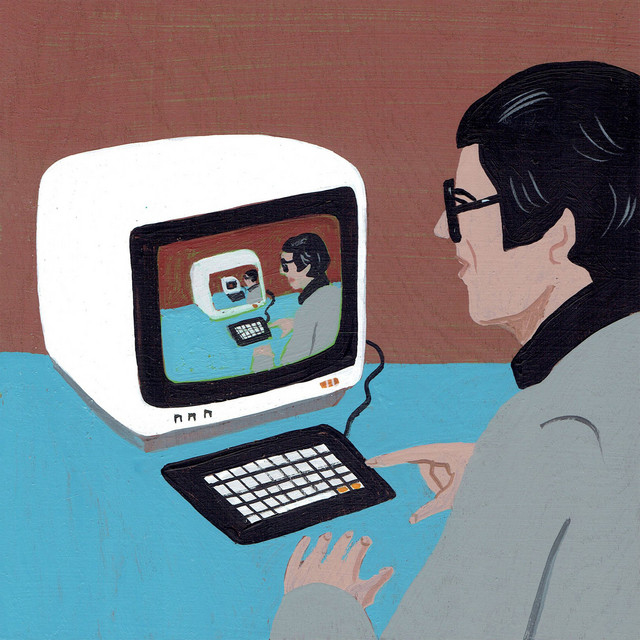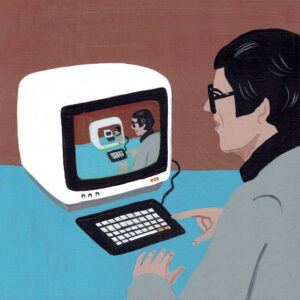
The Creation of Noninteroperable Computers Is A Fool’s Errand: Corey Doctorow and Seizing the Means of Computation
 “Notably, tech giants today are able to wield the law against interoperators: new technologies that plug into their services, systems and platforms. That’s a privilege that none of yesterday’s easily toppled tech giants had—if IBM wanted to prevent its competitors (the “seven dwarfs” of the mainframe era) from making software, printers, keyboards and storage for its mainframes, it had to figure out how to build a computer that no one else could reverse engineer and improve on.
“Notably, tech giants today are able to wield the law against interoperators: new technologies that plug into their services, systems and platforms. That’s a privilege that none of yesterday’s easily toppled tech giants had—if IBM wanted to prevent its competitors (the “seven dwarfs” of the mainframe era) from making software, printers, keyboards and storage for its mainframes, it had to figure out how to build a computer that no one else could reverse engineer and improve on.
For complex reasons, this is impossible. The very bedrock of computer science—ideas named for midcentury computing demigods, like “Turing completeness” and “von Neumann machines”—dictates that the creation of noninteroperable computers is a fool’s errand. It’s fantasy, not science fiction, like a time machine or a faster-than-light-drive.
Today’s tech giants have not invented an interop-proof computer. They’ve invented laws that make interoperability illegal unless they give permission for it. A new, complex thicket of copyright, patent, trade secret, noncompete and other IP rights has conjured up a new offense we can think of as “felony contempt of business model”—the right of large firms to dictate how their customers, competitors and even their critics must use their products.” —Corey Doctorow
The above passage comes from the introduction to Corey Doctorow’s book, The Internet Con: How To Seize the Means of Computation. I’ve known of Doctorow for some time but this is the first occasion where I’ve had the chance to read one of his books, and it’s so good that I’m definitely interested to check out his fiction.
In the book, Doctorow brilliantly walks the reader through how Big Tech monopolies got that way (through keeping switching costs high for users and, as he says above, inventing laws that make interoperability illegal unless they give permission for it”) and what we can do about it. He’s got some great ideas in this book! I particularly loved the brief history of the modern computer that he includes (starting at the bottom of page 18), and his detailed discussion of interoperability; which was a concept I was only vaguely familiar with beforehand.
With regard to interoperability in particular, Doctorow mentions three kinds that I’d like to remember:
- Adversarial Interoperability: which, according to the EFF is “a new product or service that plugs into the existing ones without the permission of the companies that make them. Think of third-party printer ink, alternative app stores, or independent repair shops that use compatible parts from rival manufacturers to fix your car or your phone or your tractor.”
- Cooperative Interoperability: This type of interoperability results in the creation of standards, which sometimes take the form of laws. Examples of this type Doctorow gives are: “Your house, your car, your appliances, your computer, even things like the paper in your books and chemicals in your ink, are all designed to comply with standards.
- Indifferent Interoperability: Doctorow defines it thusly: “That’s when someone makes a new product that plugs into an existing one that was not designed with the new product in mind, but which was also not designed to prevent this from happening.” Doctorow goes on to say that “Indifferent interoperability is, if anything, even more common that cooperative interoperability. Nike won’t stop you from using generic drug-store laces in your running shoes, but they won’t help you either.”
After going through the various types of interoperability and persuading me that interoperability is inescapable (I would think especially in this process-relational pluralistic creality in which we find ourselves ((i.e. he didn’t have to try to hard to convince me lol!))), he shows how the war on interoperability has led to monopolists, like the John Deere company, to fight tooth and nail against the “right to repair” movement, and goes on to describe well the rise of “anti-circumvention” rules protecting digital locks, with far-reaching legislation or regulation that bans breaking these locks for any purpose, even perfectly legal ones.
…
Illustration above: Cover art for Ghosts of Vroom, Still Getting it Done
0 Comments